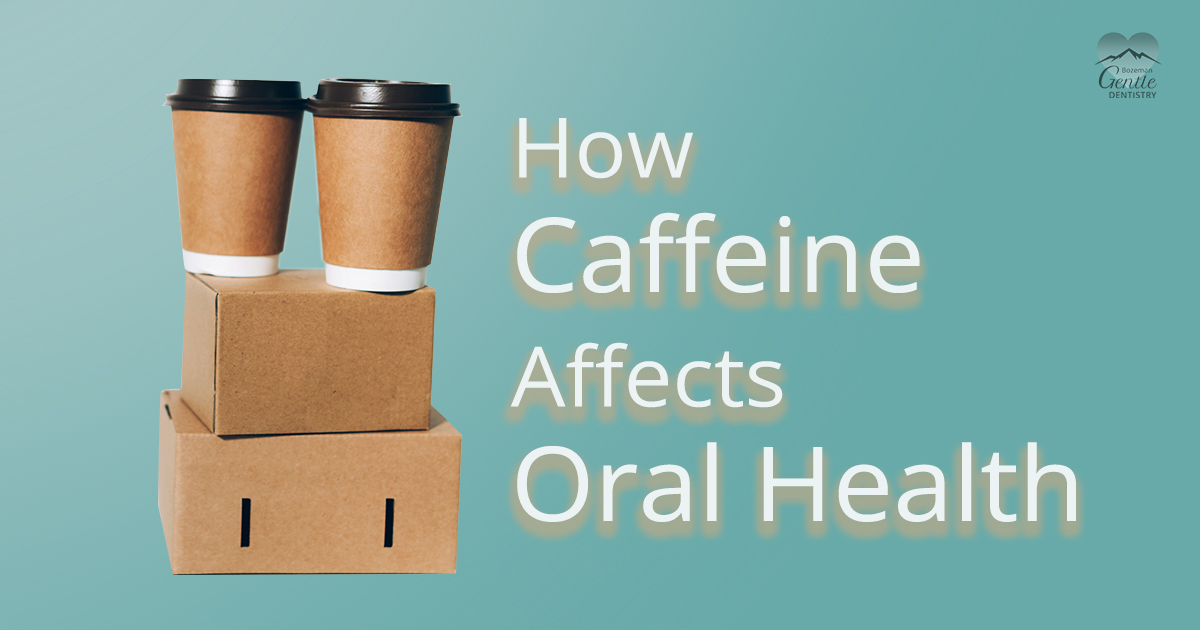5 Ways Caffeine Drinks Affect Oral Health
If you’re like 94% of American adults, you have at least one caffeinated drink a day. For most of us, coffee is the beverage of choice, but tea, soda, and energy drinks are also popular. Were you aware that beverages containing caffeine can impact oral health? Keep reading to learn more about the relationship between caffeine and oral health. Even if you avoid caffeine, chances are you know someone who could use this information.
How Caffeine Affects Oral Health
Caffeine is a stimulant. It makes you feel more alert. Many of us rely on it to start the day and also get us through the 3 p.m. slump at work. While caffeinated beverages are marketed as relatively harmless, it is important to note that caffeine does have health effects, and drinks containing caffeine can harm your oral health if you’re not careful. Here is a list of potential problems that caffeinated beverages can cause:
Staining
Coffee, tea, and dark soda, the most popular caffeine drinks, can contribute to tooth staining over time. The dark pigments in these drinks adhere to the enamel, leading to discoloration. While staining is not necessarily detrimental to your oral health, it can make you self-conscious about smiling around other people and lower your self-esteem.
Enamel Erosion
Caffeinated beverages, particularly coffee, sodas, and energy drinks, tend to be acidic. Over time, the acid in these drinks can erode tooth enamel, making teeth more susceptible to decay and sensitivity.
Dry Mouth
Besides being a stimulant, caffeine is a mild diuretic and can potentially contribute to dehydration. If you are consuming caffeine throughout the day and not also drinking water to counteract the diuretic effect, you may get dry mouth. Repeating this cycle daily could impact your oral health, as persistent dry mouth puts you at higher risk for cavities and gum disease.
Tooth Decay
Many caffeinated beverages, especially sodas, energy drinks, and flavored coffees, are high in sugar. Consuming sugary drinks regularly can contribute to tooth decay and gum disease.
Jaw Tension
Any type of stimulant, including caffeine, can potentially contribute to teeth grinding (bruxism) and jaw clenching — especially in high doses. Bruxism can lead to tooth wear, jaw pain, and other dental issues. However, there may be other factors involved as well, so talk to Dr. Murphy if you notice you are clenching your jaw or grinding your teeth.
How to Maintain Your Oral Health While Enjoying Caffeinated Beverages
- Good Oral Hygiene – Maintain a consistent oral hygiene routine, including daily brushing and flossing and dental check-ups every 4-6 months.
- Moderation – Consume caffeinated beverages in moderation to reduce the risk of staining, enamel erosion, and other potential effects.
- Stay Hydrated – Balance caffeine intake with water to stay hydrated, combat dry mouth, and promote saliva production.
- Choose Wisely – Opt for sugar-free or low-sugar drinks, drink water immediately afterward, and brush your teeth if possible.
As with any aspect of your diet and lifestyle, it is important to consider the overall context. We encourage all of our caffeine-loving patients to practice good oral hygiene to mitigate the potential risks. This includes visiting us at least twice a year so we can clean your teeth and check for oral health problems. If you have specific concerns or questions about your oral health, please contact our office located in Bozeman, MT to schedule an appointment. We look forward to seeing you soon!







